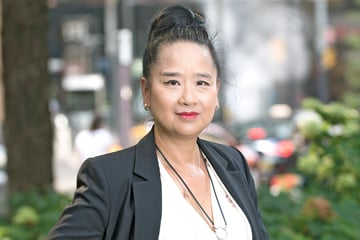
To really address barriers faced by racialized licensees, some lawyers say the Law Society of Upper Canada needs to implement entity regulation to significantly boost diversity in the legal profession. The law society is rolling out a first round of recommendations approved by Convocation in December 2016 to battle the barriers faced by racialized licensees.

To really address barriers faced by racialized licensees, some lawyers say the Law Society of Upper Canada needs to implement entity regulation to significantly boost diversity in the legal profession.
The law society is rolling out a first round of recommendations approved by Convocation in December 2016 to battle the barriers faced by racialized licensees.
While some applauded the measures as an important first step, others say the changes will be largely inconsequential without bringing law firms under the LSUC’s regulatory control.
“If the first step does not get you anywhere off the ground, then it’s not really a first step, is it?” says Lee Akazaki, a partner with Gilbertson Davis LLP.
The new obligations include requiring lawyers to record a statement of principles in their annual report, and it will involve developing and abiding by a set of principles that acknowledge a lawyer’s obligation to promote diversity.
Lawyers in legal workplaces that have at least 10 licensees will also have to adopt a human rights and diversity policy.
There is currently no penalty for not complying with the new obligations, which are directed at individual licensees.
The law society does not regulate law firms yet, but Convocation approved recommendations last year asking the provincial legislature to pass an amendment to the Law Society Act that would allow the LSUC to regulate firms. While the LSUC waits for the government to enact legislation, a task force made up of LSUC benchers is fleshing out regulations in the area.
Lai-King Hum, past chairwoman of the Roundtable of Diversity Associations, says that while she is glad to see the law society roll out the new diversity obligations, she is concerned that entity regulation has not come to fruition yet.
“My consistent position has been that in order for effective implementation of diversity initiatives, and [to] ensure a cultural shift in the profession towards greater diversity, we need entity regulation,” she says.
“I wanted the implementation timelines to coincide. Unfortunately, they have not.”
She says that the work on entity regulation needs to speed up, as otherwise the effectiveness of the initiatives to address diversity and inclusion will be “much diluted.”
LSUC Treasurer Paul Schabas says that entity regulation would certainly be helpful in the area but not necessary.
In its 2016 report on systemic racism, the law society outlined five strategies and 13 recommendations to tackle the issue, which will be implemented in coming years, starting with the two obligations for 2017.
Schabas says that these two new requirements are intended to “move the needle” and to push lawyers to think about issues such as unconscious bias. “I think these are two important steps,” he says.
“One of the most important things that came out of the report and recommendations is to educate people and to make them aware of the need for a cultural shift in the profession so that we can address what we identified as systemic bias in the profession.”
Akazaki says entity regulation would let the law society impose quotas on firms with respect to their hiring practices and other sanctions to encourage them to set targets for their demographic composition.
“You can’t have any form of policy initiative with respect to a composition of a group when you’re only able to exercise control over an individual,” he says.
“So, from a basic and logical perspective, if there is to be meaningful and real change that brings the legal profession up to the demographic realities of Canada in the 21st century, you are going to have to have entity regulation.”
Researchers and scholars say there has been a lack of consistent measurements and metrics available on the diversity of law firms in Ontario.
Asher Alkoby, an associate professor at Ryerson University’s Department of Law and Business, says that while there is data that shows racialized individuals are underrepresented in the profession as a whole, there is not a breakdown by firm. This means there is no way of telling which firms are leaders in diversity, he says.
Alkoby says transparency in such an area could be useful for attracting a diverse workforce, as well as clients who are committed to diversity. Through recent research, Alkoby has found that diversity programs devised by law firms may have helped diversify the lower ranks of law firms, but they seem to have failed to address the barriers that racialized licensees are coming up against to advance through the ranks.
“The hiring process, which is essentially a search for ‘the right fit,’ has worked to exclude marginalized groups for many years,” he says.